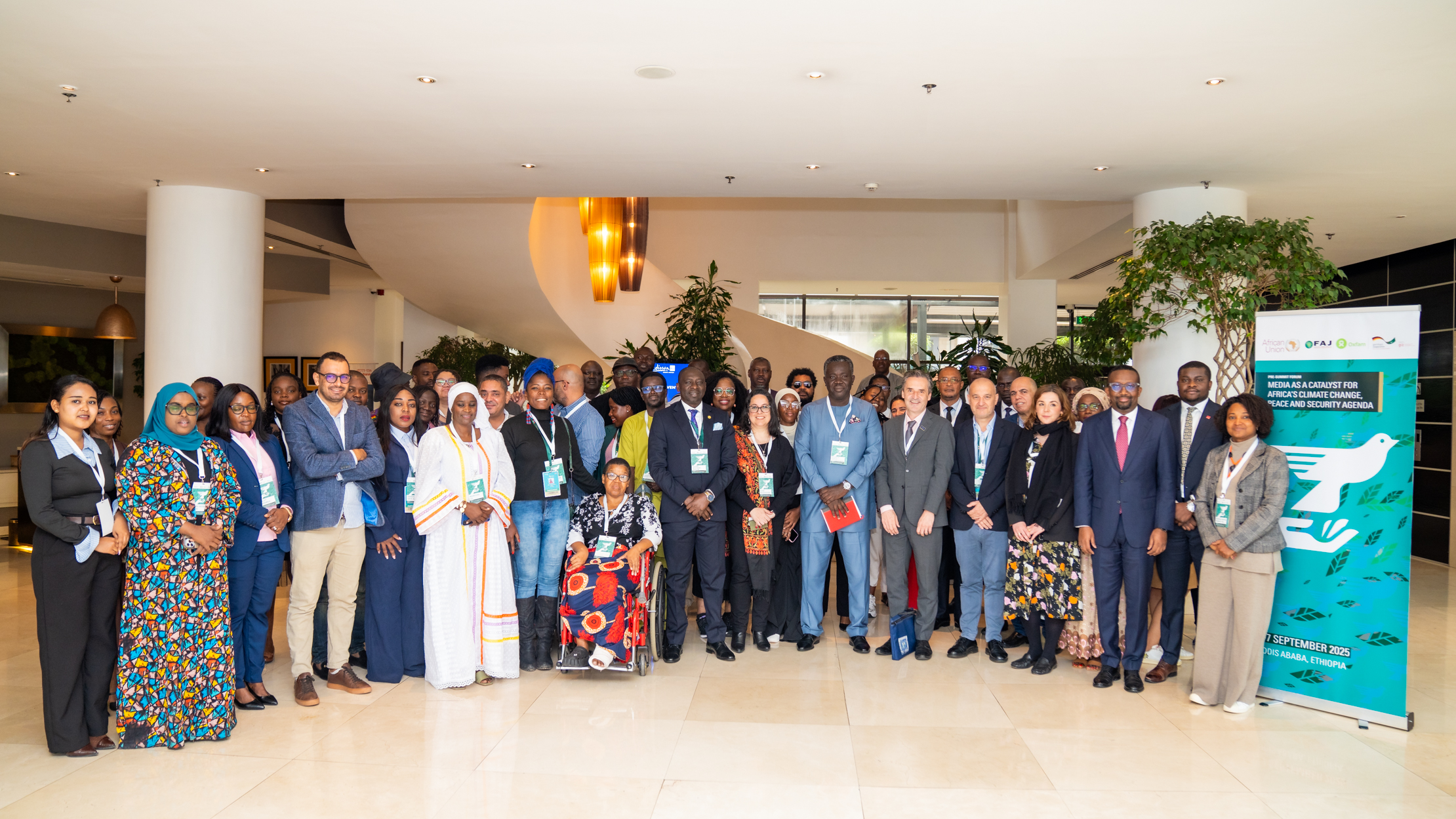African Union Advisor on Climate, Peace and Security, Dr. Philip Attuquayefio, has called for urgent investment in press freedom, training, and funding to empower journalists to tell Africa’s climate stories with accuracy and impact.
Speaking during a keynote address on the climate–peace–security nexus, Dr. Attuquayefio underscored the paradox that Africa, though least responsible for global greenhouse gas emissions, is bearing the brunt of climate-induced shocks such as droughts, floods, and desertification.
He warned that these environmental pressures act as “risk multipliers,” intensifying conflict, displacement, and poverty across the continent.

“When harvests fail or water sources dry up, competition for resources intensifies. When communities are displaced, tensions rise. And when states are overstretched, extremist organisations exploit grievances,” he said.
Dr. Attuquayefio stressed that journalism is central to bridging policy and lived realities.
“Journalists are not just chroniclers of events. They are mediators between knowledge and society, between communities and policymakers, between Africa’s lived realities and the global imagination,” he said.
He cited examples where journalists played a pivotal role in amplifying climate crises: Somali and Kenyan reporters who drew international attention to the Horn of Africa drought, investigative coverage of Lake Chad Basin’s shrinking livelihoods fueling insecurity, and reporting on Libya’s deadly floods that revealed governance failures behind the tragedy.
However, he noted that African journalists face significant barriers, from curtailed press freedoms in conflict zones to scarce funding for investigative work.
Many lack the technical training to simplify complex climate science, while the spread of disinformation further undermines public trust and collective action.
“Disinformation is a dangerous enemy,” he cautioned.
“When floods are misattributed to divine punishment, or conflicts over pasture are framed as inevitable ethnic rivalries, our capacity to respond is undermined.”
To address these challenges, Dr. Attuquayefio called for an “ecosystem of support” for African journalists, including capacity-building programmes, protections for press freedom, resources for sustained reporting, and partnerships that leverage digital platforms for fact-based storytelling.
He emphasised that journalism’s role is both reactive and preventive: exposing mismanagement, amplifying community resilience, and serving as an early warning system for looming crises.
“A deliberate journalistic agenda can ensure Africa’s climate–peace–security realities are not just policy phrases in Addis Ababa, but urgent narratives echoed in local communities, national parliaments, and global negotiations,” he concluded.

